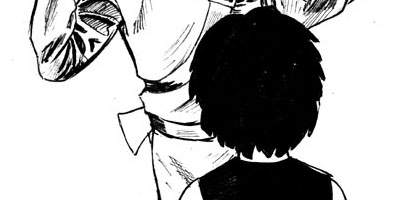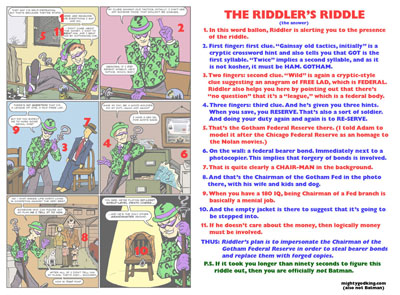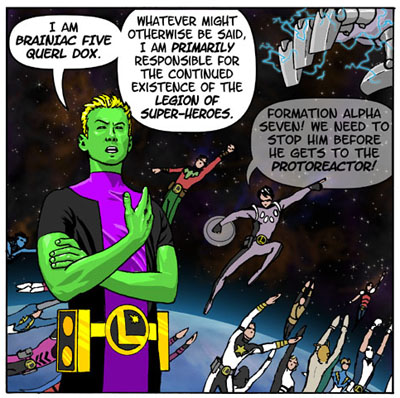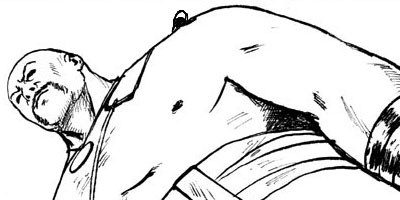My weekly TV column is up at Torontoist.
24
Oct
24
Oct
So apparently Joss Whedon directed an adaptation of Much Ado About Nothing while nobody was looking, and stuffed it, unsurprisingly, with Whedon alumni. Could be good, could be not; with Whedon I always reserve judgement until I see it, because Whedon’s stuff swings wildly along the quality arc for me. I also tend to reserve judgement on performances until I’ve seen them – that having been said, judging by this poster it looks like Amy Acker and Alexis Denisof are playing Beatrice and Benedick, and although you never know until you see the actual performance, my gut tells me these are two spectacular miscastings. I like both actors, but neither seems right for the part.
If I was going to describe Amy Acker’s specialty, it is in portraying characters who have at their core a sense of fragility to them: her characters always feel brittle and she’s very good at bringing that out of them, even if they are really quite tough when you get down to it (like, for example, Fred). But Beatrice isn’t a fragile character: she’s arguably the toughest of all of Shakespeare’s female protagonists, able to blast Benedick or outsnark Don Pedro with not an ounce of fear or worry in her.
As for Denisof: he plays characters that are, at their essence, clean-cut straight-man sorts, men who are creatures of society first and foremost, people who fit in. (Even when he plays later-years Wesley as a burnout, the influence is still there.) But Benedick isn’t that guy: Benedick is the direct forerunner of Han Solo. Benedick is a guy who actively spurns his best interests in society (marriage, being a proper gentleman as the rules of society dictate, going against his own boss if need be, etc.) and plays by his own conscience – and yes I know someone’s going to say something about Wesley here but the point is that there’s doing this sort of thing out of a sense of duty and doing it just because you want to. Nathan Fillion’s in this movie too, and he’s much more a Benedick than Denisof is.
But then again, Shakespeare wouldn’t be Shakespeare if people didn’t think they could take chances with it. So I’m curious to see how it goes. Presumably Claudio is impaled on something sharp in the final act.
24
Oct
19
Oct
Archie Andrews And The Improver of Secrets
Posted by MGK Published in Archie (Improved Or Otherwise), Comics, Interactive Fun Time Party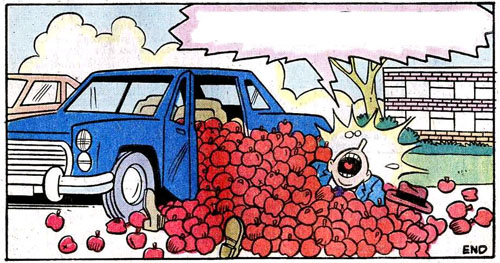
18
Oct
So Chris Sims was going around Twitter asking for people who wanted to interview him about his new comic, Dracula the Unconquered, for which Sims has decided you should all pay actual money to read. And I thought, “well, if Sims wants people to spend money on his comic, then it is only proper that I put him through the gauntlet.” Where the gauntlet is mostly me asking polite questions, basically. So here we go!
BIRD: So I’m here sitting down with Chris Sims (on a virtual basis) and we’re going to talk about his new comic, Dracula the Unconquered.
SIMS: So if I’m Chris, does that mean you have to be “Christopher?”
BIRD: I was going to go with this being a Chris-off. Which sounds dirty. Then again, pretty much the entire internet just calls me MGK anyway.
SIMS: I’m an iconoclast. But only when it comes to referring to people by their online handles.
BIRD: I have no problem with that. Speaking of which, you saw that you now are the “other” Chris Sims, right?
SIMS: I am the non-Nobel Prize-winning Chris Sims, if that’s what you mean. The thing about that is, that guy totally goes by Christopher, but he still gets the Wikipedia page for “Chris.” It’s just not right.
BIRD: I’m more or less in the same boat. When famed science journalist Christopher Bird died back in 1996 I got mail for years from people asking me if I was him.
SIMS: You got mail or him after he died? Did they think they were sending letters to heaven? Because that is adorable.
BIRD: Nah. Once or twice a week having to type out “No, that’s not me, and yes, he really is dead. Sorry.” This was pre-Google, you understand, so we had to rely on AltaVista and shit like that, and nobody actually could find anything on the internet and check things instantly. Also we had to walk uphill both ways to school in the snow.
SIMS: Ah yes. The dark days of the depression, when Alta Vista was king.
BIRD: Anyway. We should probably talk about your comic! Which you’re doing with Steve Downer on art and Josh Krach on letters.
SIMS: That is correct!
BIRD: So, I looked at what you sent me, and my first reaction is: your Dracula seems influenced by the classic Wolfman/Colan Tomb of Dracula Dracula. Tell me I”m wrong!
SIMS: It’s definitely an influence. I’ve written before how I’m a huge fan of that series. If you’ve never read it, check out the first Essential that Marvel put out — it feels like a TV show that would come on today. It’s got that kind of pacing and this ensemble cast that includes the hunky, good-hearted descendant of Dracula. And, of course, that Gene Colan art.
BIRD: Also, Tomb has the classic blue tuxedo outfit for Dracula, which I think most comic fans now default to imagining how Dracula dresses. As opposed to, and I am just saying hypothetically here, red body armor and white albino hair.
SIMS: Ha, yes. But that’s as much from Lugosi and Catstlevania: Symphony of the Night as it is from Colan. I really like the idea of Dracula being a dude who dresses for his role as the king of the vampires, you know? He’s classy. It feeds into this sense of grand arrogance that he puts out. One of the first things you see him do after he’s resurrected in Dracula the Unconquered #1 is that he starts dusting off his sleeves and adjusting his buttons for the best fit. It’s how I think of him — this image that he projects is everything. And that goes back to the original novel, too. There’s a lot of deception and pretension to Dracula when Harker meets him. He wants you to know he’s the man in charge.
BIRD: By “Harker,” are you referring to Cute Human Sidekick Girl? She didn’t get named in the first bunch of pages I read.
SIMS: No, I mean Jonathan Harker from the novel, you worthless illiterate. I was talking about when Jonathan meets him in the novel. That’s whole introduction of Dracula there was what I fixated on, trying to reconcile the way he is there with the way he gets portrayed in pop culture, which is where my version in Drac the Unconquered comes from. The girl that shows up in the comic is Thalia, she’s a brand-new character for the series.
BIRD: I want to get to Thalia a little later, mostly because the comic is named Dracula and not New Girl. Which is good, because less singing. But anyway – one of the big things for me about Tomb – and I don’t want to suggest here that you’re just trying to write Tomb again – is that it went back and forth between “Dracula is a total bastard” and “Dracula is an honorable monster and there’s far worse out there than him.” And I note that given you start the series off with Dracula first threatening Thalia and then arguing with Varney the Vampyre, who has become King of the Vampires in Drac’s absence, that you refer to both modes in the first third of your story.
SIMS: Yeah. If there’s one thing that separates my story from Tomb, it’s that Tomb was a straight-up villain comic. Dracula was unambiguously monstrous in that book, and while the original premise was that it was going to be the Good Guys hunting him down, he’s such a forceful character that he takes over and it starts to be about how Dracula fights things that are worse than he is. There’s definitely that aspect in Unconquered, but I wanted to do Dracula as an adventure hero. I’ve described it before as “Indiana Jones, starring Dracula,” and I really hope that’s how he comes across. But that said, there’s still that monstrous aspect to him, and there’s still a lot of stuff in his past that has to be at least dealt with and acknowledged if you’re going to try to do a story that… Well, it doesn’t necessarily “redeem” him, but it shows him in a different light. The things that he wants now are different from the things that he wanted when he first came to England in Stoker’s Dracula, which were different from what he wanted in the flashbacks where you see him in his full kill-the-humans end-boss Castlevania mode.
BIRD: That sounds like a challenging premise, given that, well, this is Dracula we’re talking about here. Even in Tomb he was still definitively a baddy, and that’s almost as sympathetic as he’s ever been portrayed in comics – witness, for example, Captain Britain and MI-13, where Paul Cornell made him entertainingly and plausibly racist as all get out. And that’s just the Marvel version of Dracula, which is arguably one of the most generous interpretations of the character.
SIMS: Exactly. When there are so many interpretations of a character — and that’s what I love about him, that there’s been so much done with him that he works in any sort of story — the thing that stuck out to me that could set mine apart was doing Dracula the Adventure Hero. Like I said, there’s definitely the idea behind it that there are monsters out there that would be worse than Dracula, but, you know, he’s still Dracula. I’ve written in the teaser at the website that some of the things that happened in the novel didn’t happen that way, which has given some people the idea that Dracula himself was a nicer or less monstrous figure in my take on those events. That’s not it at all — most of the evil stuff that’s attributed to Dracula is all his doing, it’s just that Harker, Van Helsing, Morris and Seward were misinformed or deliberately making themselves look more heroic than they were.
BIRD: So, how else is your Dracula distinguished? Is he a Dracula who can walk in sunlight (a la Francis Ford Coppola or Team Edward)? Or do you find the challenge of having to work around daytime to be more fun?
SIMS: You know how big a Batman fan I am. I am fully comfortable with comics that take place entirely at night for years at a time. But it’s interesting that you bring up the powers. Everyone who does a vampire story has to sort of figure out which version of vampire powers they’re going to use, and sometimes they do it by just having a dude list off what he can and can’t do. Garth Ennis has done it, and God help me, Stephenie Meyer did it too, and I hate it every time I see it. But there’s so much out there that it’s almost unavoidable.
BIRD: Well, if you don’t explicitly say that Dracula can’t shoot rainbow rays from his fingertips, people might assume that’s the case.
SIMS: I don’t do the big list, at least in the first couple of issues, the way it works in my head is that all your standard vampire powers and weaknesses — super-strength, they drink blood, sunlight burns them up — are common traits among all the vampires. But then you have the cool extra powers that are usually attributed to Dracula — being able to summon wolves and turn into a bat and take the form of mist — are King of the Vampires powers. Those powers are like the magical equivalent of a crown and scepter. They’re bestowed on you when you ascend to that level. So it’s stuff that Dracula used to be able to do, but now he can’t. To balance things out, and to explain anything else that’s come up, I have Dracula as a sorcerer as well. I mean, the guy’s a magical creature who was alive for hundreds of years. He’s picked up some tricks. You’ll see a bit of that in the first issue, too. The way I look at magic, and magical beings like Vampires, is that it’s all based in symbolism. Even the idea of the stake through the heart — it’s not because Vampires are magically vulnerable to wood, it’s because you’re literally nailing them to the ground so they can’t rise up from their graves. That’s how I try to think of it and present it, which I think dovetails with the idea of the powers as a symbol of rulership.
BIRD: Doesn’t giving Dracula magic just give you more to explain, though? Comics fans are notorious for bitching about how magic gets used as a deus ex machina (and also misunderstanding what a deus ex machina is, but you follow my point).
SIMS: In a way, yes. But like I said, it’s there from the start, and I think it fits with what I’m doing. The whole book is rooted in magic. Drac himself is a supernatural being, and like I said, the premise is largely influenced by stuff like Raiders of the Lost Ark. There are magical enemies, magical artifacts that he’s looking for, there’s wizards and spirits and ghosts. And once you establish that this is a world where all of that exists, and that your main character is right at the center of it, why not embrace it? Why wouldn’t a cunning warrior who knows there are people out there who want to kill him not figure out a way to bend that to his considerable will? Especially when he’s got decades to do it.
BIRD: Fair enough. I also note that you’re going all League of Extraordinary Gentlemen on us by bringing out Varney as one of Dracula’s antagonists in the very first issue. Are there other public-domain vampires (or monsters) waiting in the wings? Lord Ruthven, the Skeleton Mistress, and so on?
SIMS: Definitely. I mentioned this in another interview, but one of the first things I did when I figured out I wanted to do this was read Kim Newman’s Anno Dracula, which is this huge literary mashup about Dracula winning at the end of his story and going on to take over England. I almost didn’t want to read it because I really, really didn’t want to see someone doing what I wanted to do well before the idea even popped into my head. It’s a great book, though, and fortunately for me, it’s a drastically different take on Dracula himself, and all of the other vampires orbit around him in a completely different way that they’d interact with mine. Varney was a logical choice for the villain because I wanted an older vampire that would be just as powerful, and his story predates Dracula. But there are others out there. Carmilla’s a definite — she shows up pretty early in the story, actually — and I have ideas for guys like Count Orlok as well. At the same time, I don’t want to just use those guys, either. A lot of the fun in plotting the series has been figuring out how to blend them into the stories I want to tell.
BIRD: How far have you plotted it out so far?
SIMS: I’m writing the third issue, and I have the first seven pretty thoroughly plotted. I try to write so that there’s a complete adventure in each, but those first seven tell an overarching story. If there’s ever a print version, that’ll be what it is. Beyond that, I have ideas of where I want to go, but as far as things I’ve written, there’s only little pieces in my notebook. “Drac goes to China.” Stuff like that.
BIRD: Dracula versus hopping vampires sounds like a Thing. But I digress. So, earlier you mentioned Thalia. Elaborate.
SIMS: What do you want to know?
BIRD: You’re introducing a brand new character to the Dracula mythos. What wouldn’t one want to know?
SIMS: Thalia’s the viewpoint character of the book. As much as I love Dracula, the guy’s a super-arrogant 500 year-old vampire sorcerer king. He’s hard to relate to, and the story that you tell when it’s just him — like Tomb, for instance — is a much more violent, vicious story than what I wanted to do. When you add someone else to that, it changes the dynamic completely. She’s a motivating factor for what he does to kick off the entire series, and as swaggering and arrogant as he is, she’s seeing him at his lowest point, when he really needs someone there to help him. Plus, she’s just really fun to write. The further I get into it, the easier it is for her to assert her personality, which is handy for me since I have this fully formed, crystalized image of who Dracula is and how forceful he can be as a character. She’s a good counterpoint to him. I can’t lie, one of her primary functions in the story is as a “civilian” so that Dracula can fill us in on his backstory and what he’s doing, but I never, ever, EVER want that to be all she is. A comic that treats a character as nothing more than a prop is a bad comic. So while there is exposition, and there is the fact that she’s a mortal human being occasionally in need of rescue from these dangerous supernatural forces, her real value comes in the interactions that she has with Dracula, and what those interactions force him to confront.
BIRD: Okay, I think we’re near the end here. So: five reasons why people should purchase DRACULA THE UNCONQUERED, other than “It’s good, really.” And… go!
SIMS: 24 pages. Full-Color. All-Ages. Action, adventure, horror, comedy. One American Dollar.
BIRD: Those are some damn terse reasons right there.
SIMS: But good ones! Really, though: It’s a 24-page comic for a buck. If you buy it, you’ve gotten more all-new content than the average mainstream comic for a third for the price, and if you don’t like it, you’re out the price of a cup of coffee. And we didn’t even really talk about my collaborators on this one. I sent you a few pages before the interview that are just Steve’s pencils and inks, but he’s a phenomenal colorist as well.
BIRD: I dunno, Sims. You are asking us to wager a dollar on the expertise of comics creators who are not even ONE TENTH as experienced as Rob Liefeld.
SIMS: I’m an outsider. I’ve got some fresh ideas that’ll shake things up! But I will admit: Dracula has 100% fewer pouches on his outfit than any given member of Youngblood.
BIRD: That seems like a good cutoff point? unless there’s anything we didn’t cover you want to discuss?
SIMS: Hey man, it’s your dime. You want to cut off the interview without getting to the good stuff, that’s your business. FAR BE IT FROM ME A TWO TIME EISNER NOMINATED COMICS JOURNALIST TO TELL YOU WHAT TO DO.
BIRD: Ahem, member of the first and only digital publication to win a Canada National Magazine Award here, buddy.
SIMS: Pffft, whatever. “Canada.”
17
Oct
16
Oct
And so with a bit of sorrow, tempered by immense joy and constant anticipation, we bid a fond adieu to another season of Doctor Who. The plots have been duly twisted, the revelations duly revealed, the jokes laughed at and the scares screamed at. (Well, not literally. Unless you’re my five-year-old daughter, who has gotten very good at burying her face in my shoulder and asking me to tell her when this bit is over.) So, now that we know everything we know…what do we think about what we know? Let’s talk more after the cut!
continue reading "Doctor Who: Season Six Post-Mortem"
15
Oct
So this is a song by Foster the People called “Houdini.” It’s a perfectly good song. I wouldn’t call it “great,” but as indie rockers go it’s solid enough: good beat, tuneful, distinctive.
See? Not bad at all, really.
But this is the same song as re-envisioned by Remix Artist Collective:
RAC turn the song into a nu-century riff on early 80s New Wave in a lot of ways – the Tron-like keytar riff omnipresent through the song gives it a harder edge, for example. And the upped tempo of the backing music against the unchanged vocals makes the song more dramatic. I know that judgements about musical quality are so often subjective, but my subjective judgement here is that the remix is quite simply a pure upgrade to the original, a case of a B-grade song becoming an A, and remixes are rarely, to my eye, so unambigiously better than their original material.
13
Oct
I keep meaning to make some bets on InTrade but I never get around to it
Posted by MGK Published in PoliticsRecently, the political interwoobs have coalesced into two distinct camps of thought with respect to the 2012 Republican Presidential nomination campaign. These thoughts are “Mitt Romney is going to win it eventually because nobody else can” and “Mitt Romney cannot win it because the base hates him.”
The pro-Romney argument (inasmuch as any of these arguments can be called “pro-Romney,” because most of the people advancing it don’t actually think that highly of Romney beyond “well, he’s not insane, I suppose”) is simple: the party elites are coalescing around Romney for lack of a better option so he will have the most money and, as in 2008, will be able to go the distance for as long as he thinks he can win, and Romney knows this is his last kick at the can because the GOP is not going to get more moderate any time soon. And to be fair to Romney, it’s not a terrible argument. He’s got about twenty to twenty-five percent of the primary vote, making him a leading candidate.
But I am more inclined towards the anti-Romney argument, based simply on polling numbers. With the exception of the Rasmussen poll which we can say is an outlier, Romney has never gotten more than 25% support in a poll. We have seen Michelle Bachmann and Donald Trump and Rick Perry and now Herman Cain all top the polls and Romney has consistently been in second or third place. It doesn’t matter what happens: as each of these potential candidates implodes because they are crazy or inept or choose not to run, their support evaporates, but Romney gets none of it as the disenchanted GOP base abandons their hopes for Candidate A and moves on to whomever is next. (At this point, when Cain inevitably fucks up – and he’s come close a couple of times – I think they’re left with Rick Santorum.) These people simply do not want to vote for Mitt Romney.1
If you look at it like this, then Mitt Romney cannot win the nomination. If his support within the party is capped at 30% (and that appears to be on the generous side even if you include everybody still quixotically supporting Jon Huntsman), what has to happen for him to win is that the remainder of the vote has to be split at least three ways and preferably four for the majority of the campaign. But that’s not going to happen: candidates will drop out as they start running out of money, and those candidates’ support will bleed to other not-Romneys. At some point, and probably before Super Tuesday, a not-Romney will have more support than Romney does. At that point, Romney loses.
The response to this argument is “Rudy Guiliani John McCain 2008 nobody knows anything!” And it’s true: politics is weird sometimes, and nobody knows anything for sure, and Mitt Romney has a ton of money behind him and money can do a lot of things, and yes, John McCain won the nomination in 2008 with worse poll numbers at a comparable point than Romney has now. But McCain’s field was different: there was no presumptive anti-McCain movement in the base, and McCain won two of four of the “first four” states including an extremely conservative one (South Carolina) and a fairly moderate one (New Hampshire), making him all things to all people, and in 2008 the GOP base was less conservative than it was now.
And if you assume that whichever Republican wins Iowa will have an advantage in the following primaries, which they probably will, then that is bad for Mitt Romney because Mitt Romney is not going to win Iowa – he’s skipping the state and starting his campaign in New Hampshire, where he can win. The not-Romney that wins Iowa will drain support from the other not-Romneys,2 and stand an excellent chance of winning South Carolina (another early state in which Romney will probably do poorly), and if they win both will become the presumptive not-Romney. And Mitt Romney can’t win if there is a single triumphant not-Romney, because the GOP base doesn’t want to vote for him.
12
Oct
12
Oct
11
Oct
So some ad agency had the Muller people come in and say:
“Okay, so KITT is driving down the street and he parks all-awesome like, but a cop gives him a ticket, so this Muller truck nearby is actually a Transformer and it turns into a robot and it eats the cop, but then it spits out Yogi Bear because the Muller Transformer has turned the cop into Yogi. Yogi is happy so he dances down the street, but he runs into a crowd of rude businessmen, so the Muller Transformer spits out a rain of giant fruit and that turns them into Mr. Men and Pikmin and things. So they all dance happily but suddenly they see that a crane is about to knock down a small house in between two skyscrapers! Luckily, Muttley is flying his plane which has a giant hammer made from a giant Muller yogurt tin attached to it, and knocks the crane into the sky, where it dissolves into a rain of coloured birds. Then it looks like rain – oh no! But then another giant container of Muller is opened, and the yogurt forms giant hands which scoop up the rainclouds into a ball, then twist that ball into a rainbow with a smiley face on it. And scene.”
Why don’t I have that job, and the hallucinogenics that come with it?
11
Oct
Recently there’s been a lot saying of things like “Occupy Wall Street and the Tea Party have a lot in common because they’re both angry at how society has been declining and they are both frustrated by their increased inability to effect real change, so they should get together and talk stuff over.” I consider this to be an excellent example of how people can, from facts which are quite true, arrive at a premise which is utterly wrong.
The true part is that both movements are angry at their perception of society’s decline and that both are frustrated by their perceived inability to effect change. Of course, perception is not equal in all cases. Both sides accurately see that American society is entering a decline; how they perceive that decline, though, is what creates their personal narrative. Occupy Wall Street sees the decline as something happening to them. The Tea Party mostly sees the decline as something happening to other people. This is part of the reason OWS’s narrative is aggressive and the Tea Party’s is defensive. (Some might say that the Tea Party is aggressive, but that’s more about tone than goals. Their goals are defensive: stop the illegal immigrants from coming in, stop spending my tax money on other people, stop expanding healthcare because it ruins my Medicare, et cetera.)
This is the core reason why OWS and the Tea Party can’t band together. The Tea Party looks at OWS and sees them as either a symptom of what’s wrong with the country (“elites working to give those hippies my stuff”) or actually what’s wrong with the country (“those hippies tell the elites what to do!”). OWS looks at the Tea Party as either running an unknowing defensive action for corporate America (“why are they arguing we shouldn’t do things which should benefit everybody?”) or actively being willing tools of the regime (“the Koch brothers pay their salaries to protest”).
In other words, these are people who can never be allies, and it’s not just because of media narratives. It’s because, not saying whether one side is right or wrong, each side believes the other side is to blame for all of this.
(oh, who are we kidding: the Tea Partiers are wrong.)
10
Oct
My weekly TV column is up at Torontoist.
10
Oct
Search
"[O]ne of the funniest bloggers on the planet... I only wish he updated more."
-- Popcrunch.com
"By MightyGodKing, we mean sexiest blog in western civilization."
-- Jenn
Contact
MGKontributors
The Big Board
MGKlassics

Blogroll
- ‘Aqoul
- 4th Letter
- Andrew Wheeler
- Balloon Juice
- Basic Instructions
- Blog@Newsarama
- Cat and Girl
- Chris Butcher
- Colby File
- Comics Should Be Good!
- Creekside
- Dave’s Long Box
- Dead Things On Sticks
- Digby
- Enjoy Every Sandwich
- Ezra Klein
- Fafblog
- Galloping Beaver
- Garth Turner
- House To Astonish
- Howling Curmudgeons
- James Berardinelli
- John Seavey
- Journalista
- Kash Mansori
- Ken Levine
- Kevin Church
- Kevin Drum
- Kung Fu Monkey
- Lawyers, Guns and Money
- Leonard Pierce
- Letterboxd – Christopher Bird - Letterboxd – Christopher Bird
- Little Dee
- Mark Kleiman
- Marmaduke Explained
- My Blahg
- Nobody Scores!
- Norman Wilner
- Nunc Scio
- Obsidian Wings
- Occasional Superheroine
- Pajiba!
- Paul Wells
- Penny Arcade
- Perry Bible Fellowship
- Plastikgyrl
- POGGE
- Progressive Ruin
- sayitwithpie
- scans_daily
- Scary-Go-Round
- Scott Tribe
- Tangible.ca
- The Big Picture
- The Bloggess
- The Comics Reporter
- The Cunning Realist
- The ISB
- The Non-Adventures of Wonderella
- The Savage Critics
- The Superest
- The X-Axis
- Torontoist.com
- Very Good Taste
- We The Robots
- XKCD
- Yirmumah!
Donate
Archives
- August 2023
- May 2022
- January 2022
- May 2021
- January 2021
- December 2020
- October 2020
- June 2020
- March 2020
- January 2020
- December 2019
- October 2019
- February 2019
- January 2019
- December 2018
- April 2018
- March 2018
- February 2018
- January 2018
- December 2017
- November 2017
- October 2017
- February 2017
- January 2017
- December 2016
- November 2016
- October 2016
- September 2016
- August 2016
- July 2016
- June 2016
- May 2016
- April 2016
- March 2016
- February 2016
- January 2016
- December 2015
- November 2015
- October 2015
- September 2015
- August 2015
- July 2015
- June 2015
- May 2015
- April 2015
- March 2015
- February 2015
- January 2015
- December 2014
- November 2014
- October 2014
- September 2014
- August 2014
- July 2014
- June 2014
- May 2014
- April 2014
- March 2014
- February 2014
- January 2014
- December 2013
- November 2013
- October 2013
- September 2013
- August 2013
- July 2013
- June 2013
- May 2013
- April 2013
- March 2013
- February 2013
- January 2013
- December 2012
- November 2012
- October 2012
- September 2012
- August 2012
- July 2012
- June 2012
- May 2012
- April 2012
- March 2012
- February 2012
- January 2012
- December 2011
- November 2011
- October 2011
- September 2011
- August 2011
- July 2011
- June 2011
- May 2011
- April 2011
- March 2011
- February 2011
- January 2011
- December 2010
- November 2010
- October 2010
- September 2010
- August 2010
- July 2010
- June 2010
- May 2010
- April 2010
- March 2010
- February 2010
- January 2010
- December 2009
- November 2009
- October 2009
- September 2009
- August 2009
- July 2009
- June 2009
- May 2009
- April 2009
- March 2009
- February 2009
- January 2009
- December 2008
- November 2008
- October 2008
- September 2008
- August 2008
- July 2008
- June 2008
- May 2008
- April 2008
- March 2008
- February 2008
- January 2008
- December 2007
- November 2007
- October 2007
- September 2007
- August 2007
- July 2007
- February 2007
Tweet Machine
- No Tweets Available
Recent Posts
- Server maintenance for https
- CALL FOR VOTES: the 2021 rec.sport.pro-wrestling Awards
- CALL FOR NOMINATIONS: The 2021 rec.sport.pro-wrestling Awards (the Theszies)
- The 2020 RSPW Awards – RESULTS
- CALL FOR VOTES: the 2020 Theszies (rec.sport.pro-wrestling Awards)
- CALL FOR NOMINATIONS: The 2020 Theszies (rec.sport.pro-wrestling awards)
- given today’s news
- If you can Schumacher it there you can Schumacher it anywhere
- The 2019 RSPW Awards – RESULTS
- CALL FOR VOTES – The 2019 RSPW Awards (The Theszies)
Recent Comments
- George Leonard in When Pogo Met Simple J. Malarkey
- Blob in How Jason Todd Went Wrong A Second Time
- Cindi Chesser in Thursday WHO'S WHO: The War Wheel
- Scott Hater in Bing, Bang, Bing, Fuck Off
- dan loz in Hey, remember how we talked a while a back about b…
- Sean in Server maintenance for https
- Ethan in CALL FOR VOTES: the 2021 rec.sport.pro-wrestling A…
- wyrmsine in ALIGNMENT CHART! Search Engines
- Jeff in CALL FOR VOTES: the 2021 rec.sport.pro-wrestling A…
- Greg in CALL FOR VOTES: the 2021 rec.sport.pro-wrestling A…

